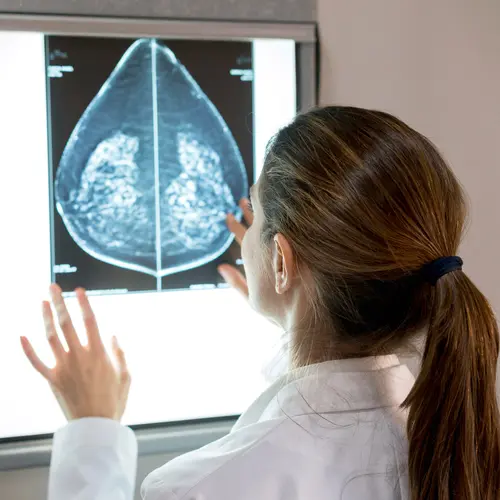July 26, 2024 – The final scene in Barbie, last summer’s biggest movie blockbuster, lasts less than a minute. It’s essentially a one-line joke: Barbie walks into a building, wide-eyed and beaming, and says to the receptionist, “I’m here to see my gynecologist.”
For many audience members, that line stuck the landing on the film’s central message. But something else happened: Apparently, a surprising number of viewers left with their curiosity piqued.
According to a new study, published today in the journal JAMA Network Open, there was a 51% increase in online searches for “gynecologist” and “gynecology” in the week after Barbie’s theatrical release. There was also a 154% increase in searches for the definition of gynecologist and phrases like “do I need a gynecologist.”
Still, exactly why they were searching is open to speculation. As numerous studies have shown, more than half of women of all ages feel anxiety, fear, or embarrassment about their pelvic examinations. And those emotions are in stark contrast to what they saw play out in Barbie.
Barbie didn’t exactly break Hollywood’s gynecology glass ceiling. Movies and TV shows have long included scenes with women making that first nervous visit to a gynecologist's office. But almost invariably, they’re played for either “isn’t this mortifying?” laughs – like in the movie Knocked Up and the sitcom I’m Sorry. Barbie, however, took a different approach.
Eva Sénéchal, the study’s lead author and a graduate student researcher at McGill University in Montreal, suspects the scene’s power is in Barbie “taking initiative and overcoming her fear of the unknown. While this scene doesn’t necessarily make going to the gynecologist seem like a fun activity, it highlights Barbie’s excitement about reclaiming her power and, in this specific scenario, her body.”
The point, Sénéchal said, isn’t that visiting the gynecologist is inherently a positive and life-affirming activity, “but rather that taking control of your own body and health is. It helps make this taboo topic a little less intimidating and opens the door for more discussions amongst young viewers or those unfamiliar with terms related to women’s health.”
Greta Gerwig, Barbie’s director, agrees that Barbie’s gynecological moment was about more than just an easy laugh about her nonexistent private parts. “When I was a teenage girl, I remember growing up and being embarrassed about my body, and just feeling ashamed in a way that I couldn’t even describe,” she told USA Today last summer.
(All the more significant since Gerwig and star Margot Robbie had to fight to keep the final line in the film.)
There was a significance to Barbie facing this scary new world with “a big old smile on her face,” explained Gerwig, “saying what she says at the end with such happiness and joy.” She wanted to leave young female viewers with a feeling of, “Barbie does it, too,” Gerwig said.
And that's exactly what she accomplished, said Deborah Bartz, MD, an obstetrician-gynecologist at Brigham and Women’s Hospital in Boston and an associate professor of obstetrics, gynecology and reproductive biology at Harvard Medical School. “I might be biased as a gynecologist, but I think that final scene lands perfectly,” she said. “The writers of that movie knew their audience and they wrote for their audience. The adult women in the audience knew perfectly well what was in store for eager, naïve Barbie as she checked into her appointment.”
In fact, Bartz said, the positive influence may likely extend beyond what the study suggests. Barbie's gynecologist visit was a shared pop culture moment for friends, moms, sisters, and other women, a bridge to discuss a topic that rarely gets discussed thanks to cultural stigma and shame.
“This is especially important since so many female-specific medical conditions are experienced by large swaths of the population – menstrual cycles and cyclic symptoms with those cycles, pregnancy, infertility, miscarriage, pregnancy prevention, menopause,” said Bartz. “The gynecologic health of a person is very much a shared experience with her social network. But women often don't feel like they can share some of these personal medical experiences, at least not widely.”
But that changes when they see themselves, or at least their life hurdles, reflected on the big (and sometimes small) screen. “We have many women who feel very isolated and alone at times of miscarriage, infertility, abortion, or diagnosis of fetal anomalies,” said Bartz. “So when personalities in popular culture, portrayed in movies and TV, have these same experiences, it can be very comforting and relatable.”
Even for women well-versed in what to expect at the gynecologist's office, Bartz suspects “that final scene in Barbie is a perfect setup for the audience to say, ‘Just you wait, girl!’”
